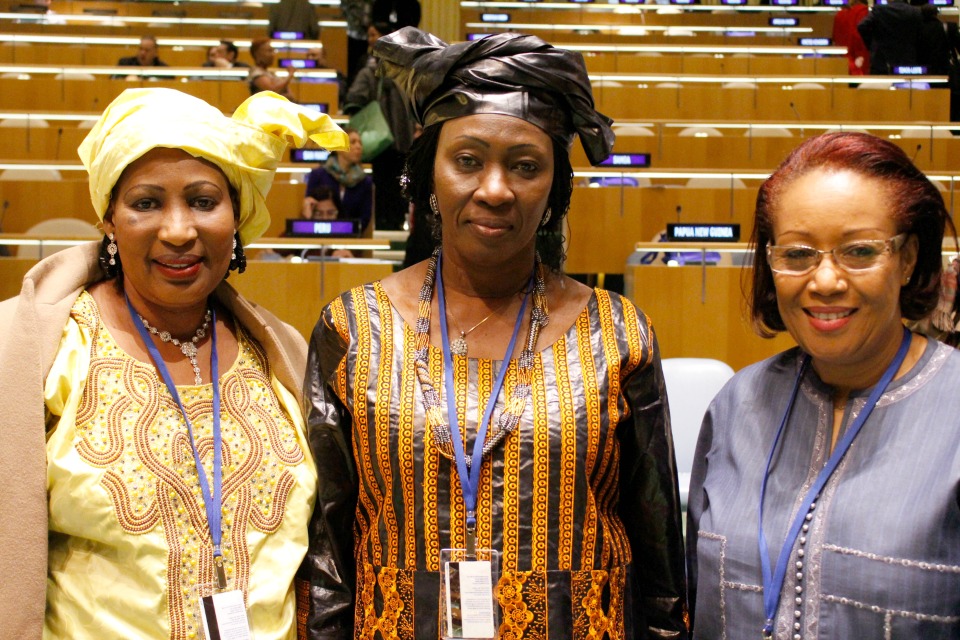"If we want half of world鈥檚 population to have a say in conflict prevention ... then let us begin in this building."
Statement by Ambassador Matthew Rycroft of the UK Mission to the UN at the Security Council Open Debate on Women, Peace and Security.

Thank you Madam President. I join others in thanking the briefers for their insights, and I welcome Palegi Eyang to the Council. We should hear the voices of women activists from civil society in this Chamber more often.
I鈥檇 like to begin with the words of another activist, the Nobel Laureate, Leymah Gbowee. In 2003, her group 鈥榃omen of Liberia Mass Action for Peace鈥� successfully pressed Charles Taylor to attend peace talks. Talking afterwards, she said, and I quote: 鈥淲e are now taking this stand, to secure the future of our children. Because we believe, as custodians of society, tomorrow our children will ask us, 鈥楳ama, what was your role during the crisis?鈥�, end of quote.
What was your role during the crisis?
皇冠体育app answer to that question for so many women in Africa isn鈥檛 鈥榥egotiator鈥�. It isn鈥檛 鈥榚nvoy鈥�, it isn鈥檛 鈥榙elegate鈥� even, and this needs to change.
It isn鈥檛 just about ending gender inequality. It鈥檚 not just a women鈥檚 issue. It鈥檚 a peace issue. When women鈥檚 voices are heard in peace processes, in negotiations, in state-building, the chances of a lasting peace increase.
And if we鈥檙e serious about truly resolving conflicts, about preserving peace, not just for hours, but for generations, we must heed the words of Leymah Gbowee and our briefer, Palegi Eyang. 皇冠体育appy demonstrate just how powerful community-based activism can be. Just think how powerful those women鈥檚 voices could have been had they actually been in the room at key times during peace processes?
So, whether in Africa or in any other part of the world, we need to make sure that women are playing the fullest role in conflict resolution. I鈥檓 proud that all future UK-hosted peace-building events will ensure that women鈥檚 voices are heard. If the rest of the Council follows suit, then we鈥檇 send a strong message to the rest of the world.
To support this effort, we have to increase women鈥檚 participation in politics and society. And that means delivering on the commitments we made in resolutions 1325, 1889, 2242 and so many others.
Because breaking down the barriers facing women in peace talks requires breaking down barriers facing women across society. It means helping girls stay in school, improving healthcare, and yes, tackling sexual violence. At its heart, it鈥檚 about ending discrimination against women. We all have a part to play. In Somalia, the United Kingdom is helping make health services available to over a million Somali women and children. We鈥檙e also providing legal assistance to thousands of Somali women and will soon be supporting initiatives that boost their participation in politics too.
But this issue won鈥檛 be solved by one country alone. That鈥檚 why the United Kingdom is contributing a million dollars to the Global Acceleration Instrument on Women, Peace, Security and Humanitarian Action. By funding the GAI, we can all offer material support that can break down these barriers. In Burundi, a network of women mediators was able to deal with 5,200 local conflicts in 2015. That鈥檚 over 14 a day. Thanks to the GAI, they鈥檙e now scaling up their activities. At a time when this Council has been so frustrated by the crisis in Burundi, it鈥檚 heartening to see how powerful women鈥檚 civil society can be in their local mediation efforts.
Ultimately, however, supporting this effort requires more than just our money. When the Council visited Mali, Guinea Bissau and Senegal earlier this month, there wasn鈥檛 a single female representative of this Council on the trip. And even here in New York, only two of the fifteen Security Council countries are represented by a woman at this debate. So as we call upon Africa鈥檚 leaders to do more to bring women into conflict prevention and resolution, let us also heed the call ourselves.
What signal does it send when the primary body for preserving international peace and security only has one woman among its fifteen permanent representatives? What message does it send to that young girl in Somalia who dreams of becoming President? Or to those who want to answer the question 鈥榳hat was your role鈥� with something other than 鈥榮urvivor鈥�?
If we want half of world鈥檚 population to have a say in conflict prevention and resolution, then let us begin in this building. That鈥檚 why the United Kingdom has been clear that we need as many credible women as possible to apply to be the next UN Secretary-General. We鈥檝e had three so far and I hope that there are more to come.
It鈥檚 time to make history; a historic moment that鈥檚 long overdue. All things being equal, we hope that this will be the year that we appoint a woman to be Secretary-General of the United Nations for the first time. And when asked 鈥榳hat was your role鈥� she will be able to say that she was at the forefront of the UN鈥檚 action to prevent conflict and resolve crises, and represent the entire world, not just half of it.
Thank you Madam President.